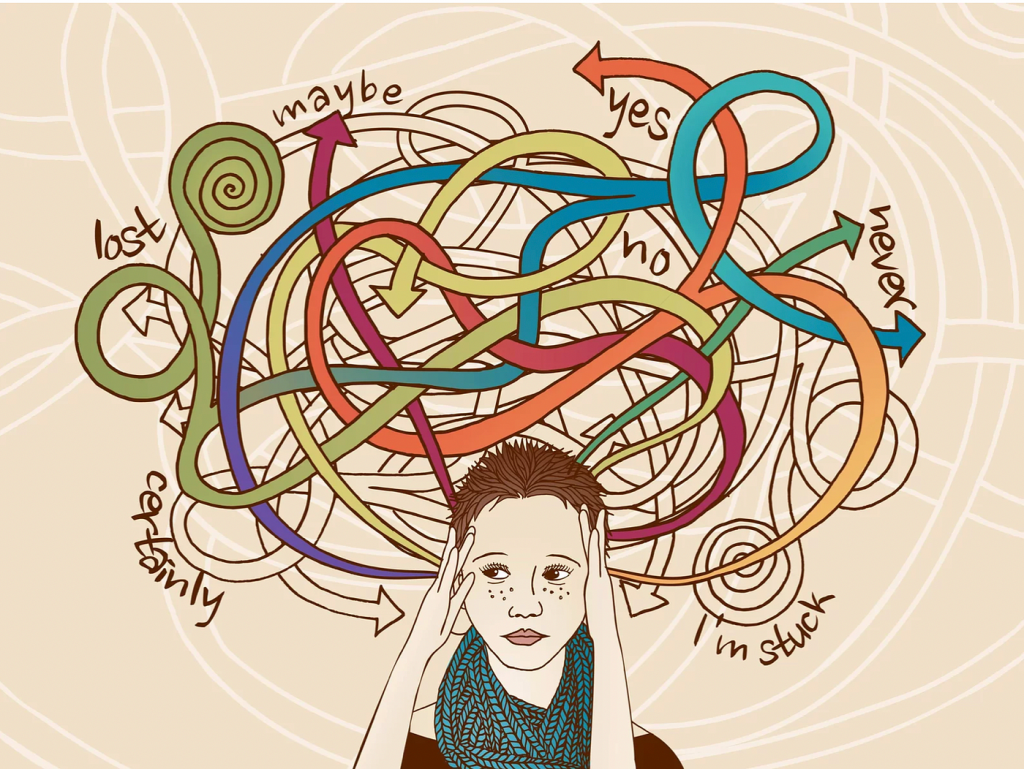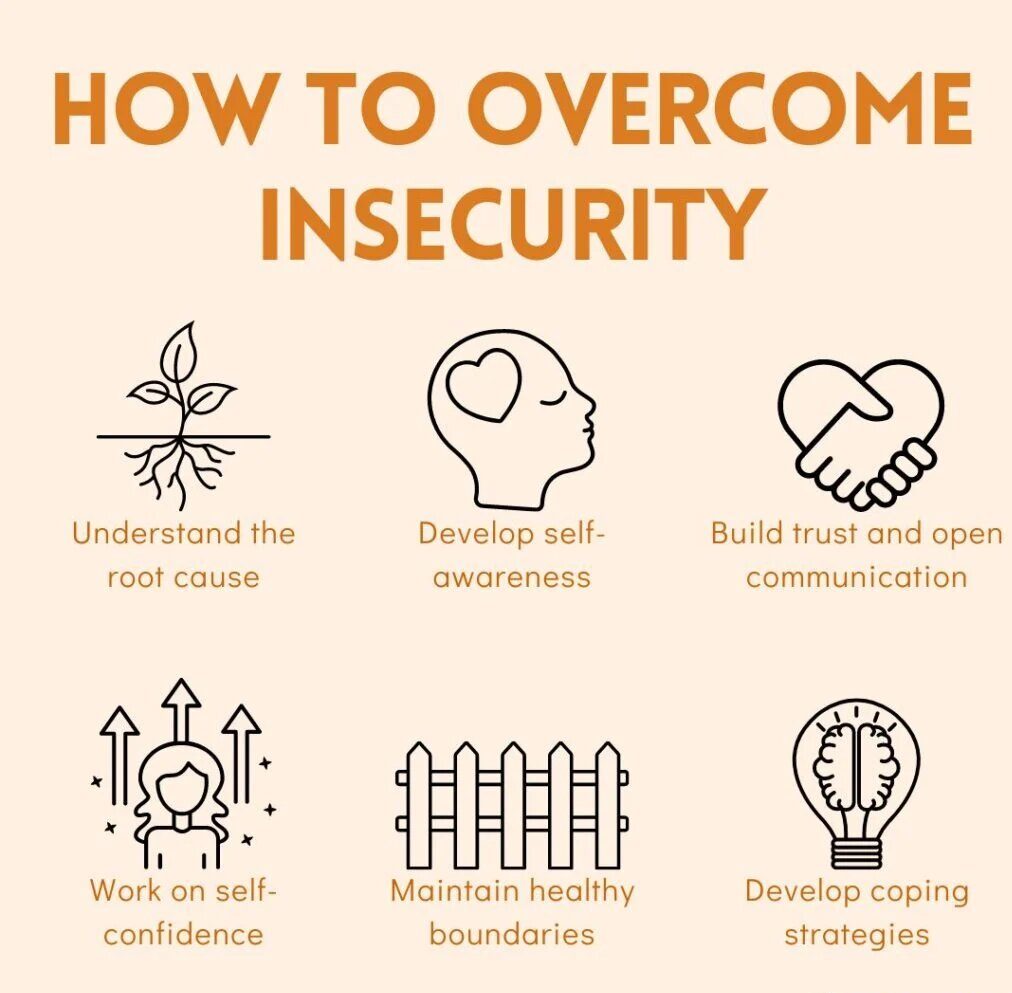Table of Contents
ToggleIntroduction:-
Insecurity can be a silent but powerful force that impacts the dynamics of a relationship, often leading to detrimental behaviors and patterns. In this article, we will delve into the five common things that insecure individuals tend to do in relationships, shedding light on the underlying causes and offering insights for personal growth. By understanding these patterns, we can work towards healthier and more fulfilling connections with our partners.

Understanding Insecurity
Insecurity, defined as deep-rooted fears and self-doubt, can create a toxic environment within a relationship. When left unchecked, it hinders personal growth and erodes the foundation of trust. To address insecurity, it is crucial to identify the behaviors that often accompany it.

Constant Need for Validation
Insecure individuals often seek validation from their partners as a means to alleviate their own doubts and insecurities. This constant need for reassurance can become exhausting for both parties involved, leading to an imbalanced power dynamic and potential resentment.

Jealousy and Possessiveness
Insecurity can manifest as jealousy and possessiveness, creating a toxic cycle of control and mistrust. Insecure individuals may struggle with feelings of inadequacy, leading them to monitor their partner’s actions, question their loyalty, and impose restrictions on their interactions with others.

Overanalyzing and Overthinking
Insecurity fuels an overactive mind, causing individuals to scrutinize even the smallest details. This constant overanalysis often leads to misinterpretations, assumptions, and unnecessary conflicts. Insecure individuals may find themselves trapped in a cycle of self-doubt, always questioning their partner’s intentions and searching for hidden meanings.

Self-Sabotage and Pushing Away
Insecurity can drive individuals to self-sabotage their relationships as a way to protect themselves from potential pain or rejection. Fear of vulnerability and a deep-rooted belief that they are unworthy of love can lead insecure individuals to push away their partners, creating a self-fulfilling prophecy of abandonment.

Overdependence on the Relationship
Insecure individuals often place an excessive amount of importance on their relationship, making it the sole source of their self-esteem and contentment. This overdependence can create an unhealthy dynamic, as the insecure individual relies on their partner to fill the voids within themselves, leading to an unbalanced power dynamic and potential codependency.

Overcoming Insecurity: Strategies for Growth
Recognizing and addressing insecurity within ourselves is crucial for building healthy and fulfilling relationships. Here are some strategies to promote personal growth and overcome insecurity:
-
Self-Reflection: Engage in introspection and identify the root causes of your insecurities. Understanding the triggers and underlying beliefs can help you develop self-awareness and work towards healing.
-
Open Communication: Foster a safe space for open and honest communication with your partner. Share your fears and insecurities, allowing them to understand your perspective and provide support.
-
Building Self-Worth: Focus on developing a strong sense of self-worth and cultivating self-love. Engage in self-care activities, pursue personal interests, and surround yourself with positive influences.
-
Seeking Professional Help: Consider seeking therapy or counseling to address deep-seated insecurities and work through them with the guidance of a trained professional.
Conclusion: Embracing Growth and Nurturing Healthy Relationships
In conclusion, recognizing and addressing insecurity within ourselves is a vital step towards building healthy and fulfilling relationships. By understanding the patterns of insecurity and implementing strategies for growth, we can create stronger connections based on trust, open communication, and mutual support. Remember, personal growth is a lifelong journey, and with dedication and self-compassion, we can break free from the destructive patterns of insecurity and cultivate fulfilling relationships.
FAQ Section:
Q: Can insecurity be completely eliminated from a relationship?
A: While complete elimination of insecurity may be challenging, it can be managed and minimized through self-awareness, open communication, and personal growth. It requires effort from both partners to create a supportive and nurturing environment.
Q: How can I support my partner who struggles with insecurity?
A: Patience, understanding, and open communication are key. Encourage your partner to express their feelings and fears, and provide reassurance and support. However, it’s important to set healthy boundaries and encourage them to work on their own personal growth.
Q: Is insecurity always detrimental to a relationship?
A: Insecurity itself is not inherently detrimental, as everyone experiences moments of insecurity. However, when insecurity leads to unhealthy behaviors and patterns, it can negatively impact the relationship. It is important to address and work through these patterns for a healthier connection.
Q: Can therapy help individuals overcome insecurity in relationships?
A: Yes, therapy can be highly beneficial for individuals struggling with insecurity. A trained therapist can provide guidance, support, and tools to help individuals develop healthier coping mechanisms and address the underlying causes of their insecurities.
How useful was this post?
Click on a star to rate it!
Average rating 0 / 5. Vote count: 0
No votes so far! Be the first to rate this post.




Thanks for sharing. I read many of your blog posts, cool, your blog is very good.
Thanks for sharing. I read many of your blog posts, cool, your blog is very good.
Your article helped me a lot, is there any more related content? Thanks!
Thanks for sharing. I read many of your blog posts, cool, your blog is very good.
Thanks for sharing. I read many of your blog posts, cool, your blog is very good.
Thank you for your sharing. I am worried that I lack creative ideas. It is your article that makes me full of hope. Thank you. But, I have a question, can you help me?
Your point of view caught my eye and was very interesting. Thanks. I have a question for you.
Thank you for your sharing. I am worried that I lack creative ideas. It is your article that makes me full of hope. Thank you. But, I have a question, can you help me?
Can you be more specific about the content of your article? After reading it, I still have some doubts. Hope you can help me.
Thanks for sharing. I read many of your blog posts, cool, your blog is very good.
Thanks for sharing. I read many of your blog posts, cool, your blog is very good.
Thank you for your sharing. I am worried that I lack creative ideas. It is your article that makes me full of hope. Thank you. But, I have a question, can you help me?
Your article helped me a lot, is there any more related content? Thanks!
Thank you for your sharing. I am worried that I lack creative ideas. It is your article that makes me full of hope. Thank you. But, I have a question, can you help me?
Thank you for your sharing. I am worried that I lack creative ideas. It is your article that makes me full of hope. Thank you. But, I have a question, can you help me?
BWER Company is Iraq’s leading supplier of advanced weighbridge systems, offering reliable, accurate, and durable solutions for industrial and commercial needs, designed to handle heavy-duty weighing applications across various sectors.
I don’t think the title of your article matches the content lol. Just kidding, mainly because I had some doubts after reading the article.
BWER Company is Iraq’s leading supplier of advanced weighbridge systems, offering reliable, accurate, and durable solutions for industrial and commercial needs, designed to handle heavy-duty weighing applications across various sectors.
BWER sets the standard for weighbridge excellence in Iraq, offering innovative, reliable systems and dedicated support to ensure optimal performance and client satisfaction.
Thank you for your sharing. I am worried that I lack creative ideas. It is your article that makes me full of hope. Thank you. But, I have a question, can you help me?
Great! Thank you so much for sharing this. Visit my websitee: free stresser
I don’t think the title of your article matches the content lol. Just kidding, mainly because I had some doubts after reading the article.
Can you be more specific about the content of your article? After reading it, I still have some doubts. Hope you can help me.
Thanks for sharing. I read many of your blog posts, cool, your blog is very good.
Your point of view caught my eye and was very interesting. Thanks. I have a question for you.